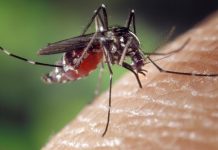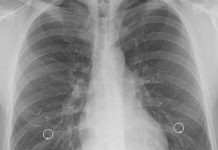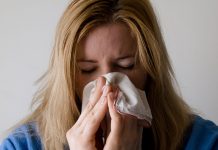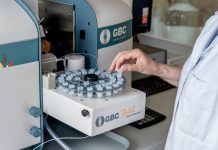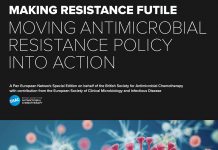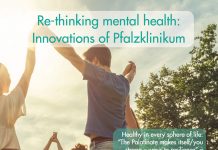Newly adapted HIV test will help diagnose Zika virus
Researchers from New York University (NYU), US, are developing a test for Zika virus that uses saliva to identify diagnostic markers of the virus...
Can wine polyphenols protect you from gum disease?
New research from the American Chemical Society has emerged that reports how wine polyphenols could be great for combating oral health issues, such as...
UK mental health trusts have less income than in 2011-12
New figures analysed by the Royal College of Psychiatrists show that mental health trusts have less money to spend on patient care than they...
Do surgery and anaesthesia cause memory issues?
A new study has suggested that patients who have recently had surgery and anaesthesia may score slightly lower on certain memory tests.
To understand the...
Antidepressants do work, says new study
A new study has called an end to a long-lasting debate regarding antidepressants, revealing that they are indeed effective at reducing symptoms of acute...
Young adults at greater risk of developing infectious tuberculosis
A total of 1.8 million young people between the ages of ten and 24 are estimated to develop tuberculosis (TB) every year, with 20...
Is low arginine bioavailability linked to depression?
Sufferers of major depressive disorder (MMD) have reduced arginine bioavailability, which is known to be an independent risk factor of cardiovascular disease, according to...
Measles cases in 2017 increased four-fold compared to 2016
The number of measles cases has rebounded in the World Health Organization (WHO) European Region, with a substantial increase last year following a record...
Alcohol use disorders are biggest risk factor for dementia
A new nationwide observational study has found that alcohol use disorders are the biggest risk factors for all types of dementia, especially early-onset dementia.
The...
Past experiences shape future influenza vaccine response
New research from the University of Chicago, US, has shown that immune history with the flu has a direct influence on a person’s response...
EU-supported wearable laser cures chronic skin conditions
EU-funded scientists have developed a wearable laser that will blast the skin with light and treat chronic skin conditions such as acne, actinic keratosis...
Genetics makes Europeans more susceptible to dengue shock syndrome
A new study has found that people of European ancestry are more prone to developing severe dengue shock syndrome (DSS) than those of African...
New genetic mutation passed on by men increases risk of ovarian cancer
Researchers from the Roswell Park Cancer Institute, US, have uncovered a new genetic mutation inherited from fathers that can increase the risk of ovarian...
CRUK announces £45m investment in cancer clinical trials
Cancer Research UK is to invest £45m (~€50.8m) into its network of cancer clinical trials units (CTUs) across the UK, one of the charity’s...
Discovering autism in children using blood and urine tests
Researchers at the University of Warwick, UK, have developed new tests to help indicate autism in children which monitors changes in the blood and...
Moving AMR policy into action
The British Society for Antimicrobial Chemotherapy (BSAC) was founded in 1971, and facilitates the acquisition and dissemination of knowledge in the field of antimicrobial...
Pfalzklinikum provides mental health and neurology services in the Rhineland-Palatinate
Pfalzklinikum is a provider of mental health and neurology services in the Rhineland-Palatinate in southwest Germany with over 2,000 employees in 14 locations.
Its work...
Newcastle Initiative on Changing Age
Newcastle University began research into ageing with pioneering work on dementia in the 1960s and 1970s.
The university was one of the first to recognise...
World leaders join new commission to tackle noncommunicable diseases
The World Health Organization (WHO) has today announced a new high-level commission that aims to put an end to noncommunicable diseases (NCDs).
The new WHO...
Malaria research method sees patients deliberately infected with parasite
To aid malaria research, a new process from the University of Tubingen, Germany, has been tested whereby individuals are infected with malaria to help...


